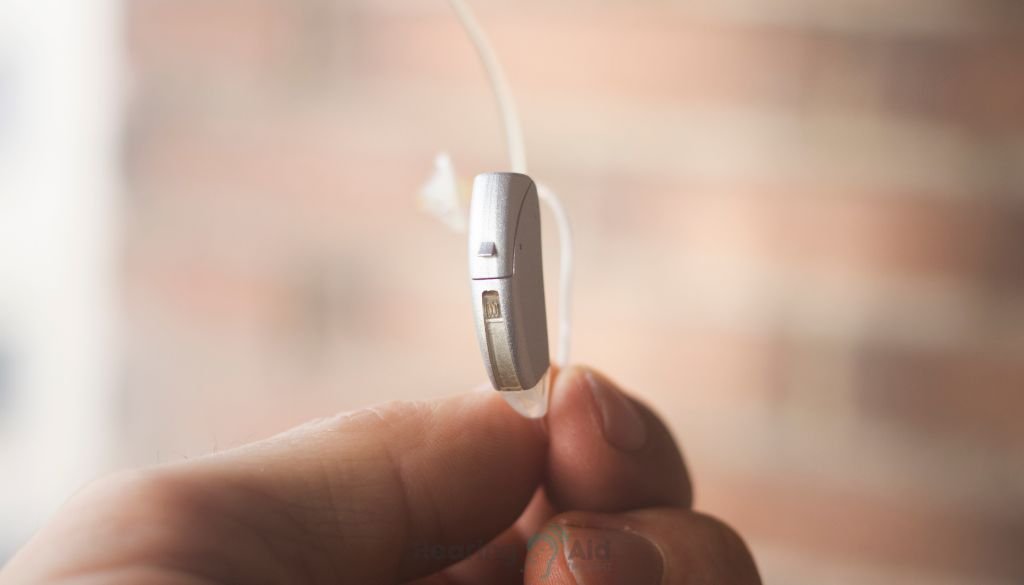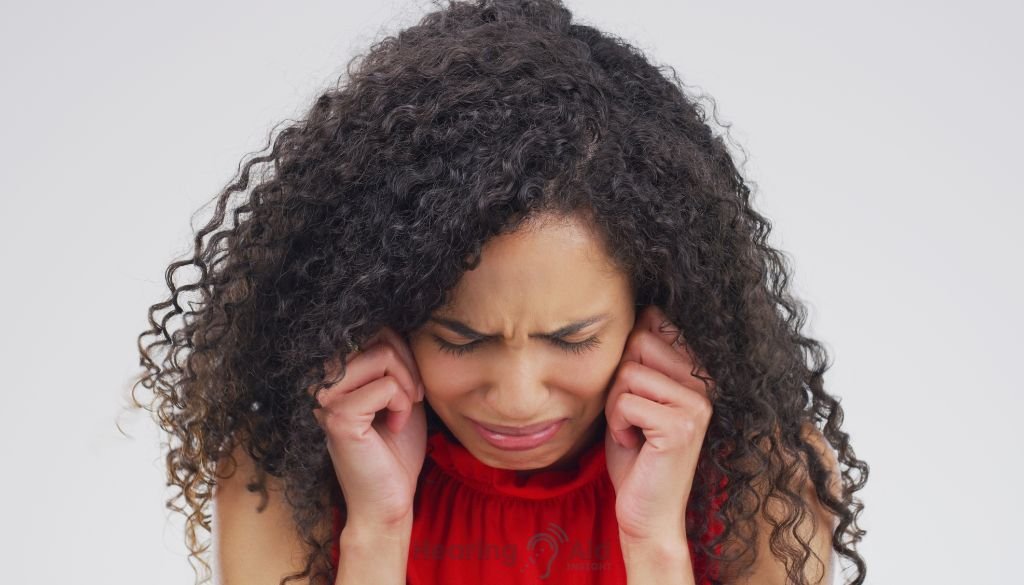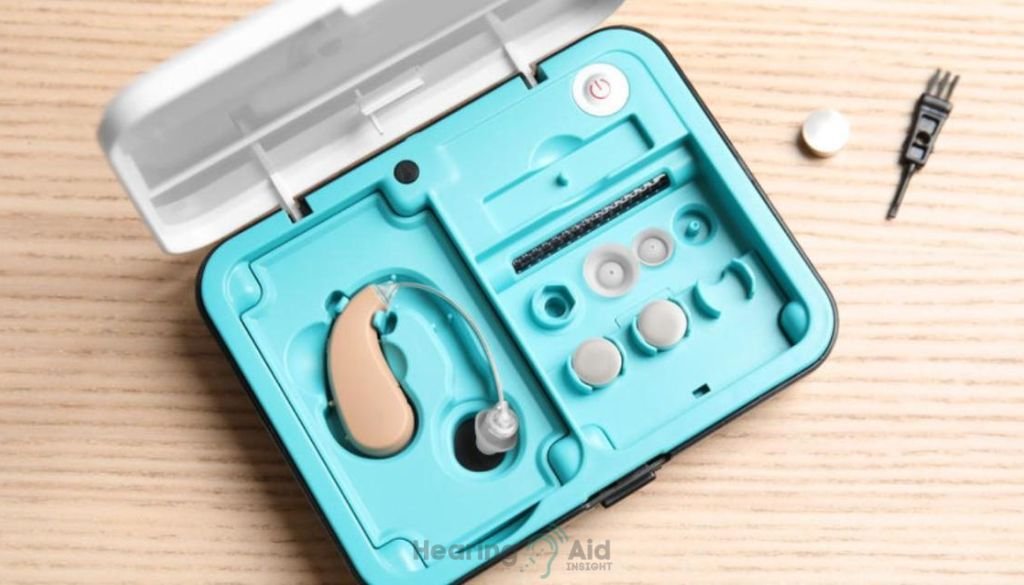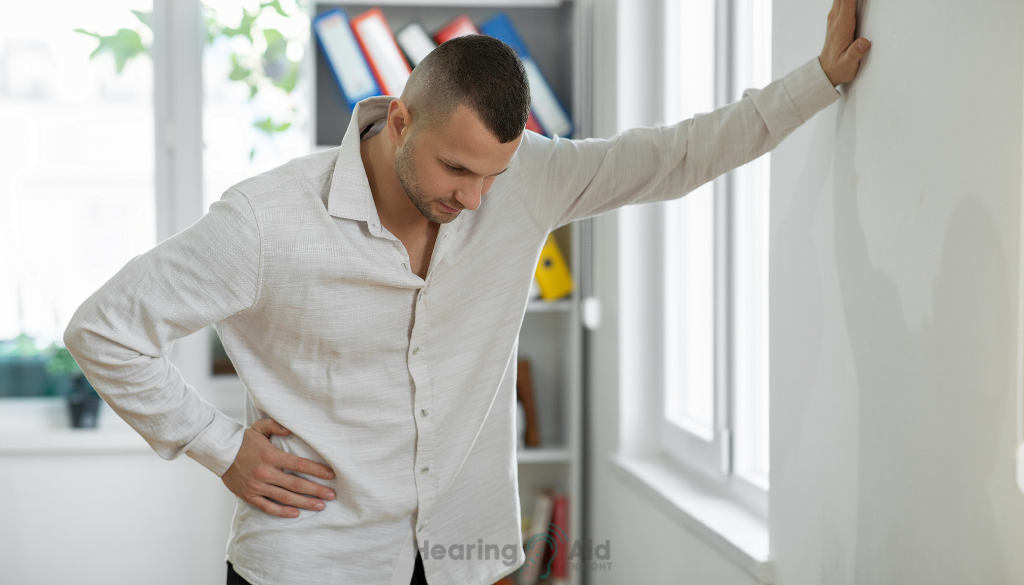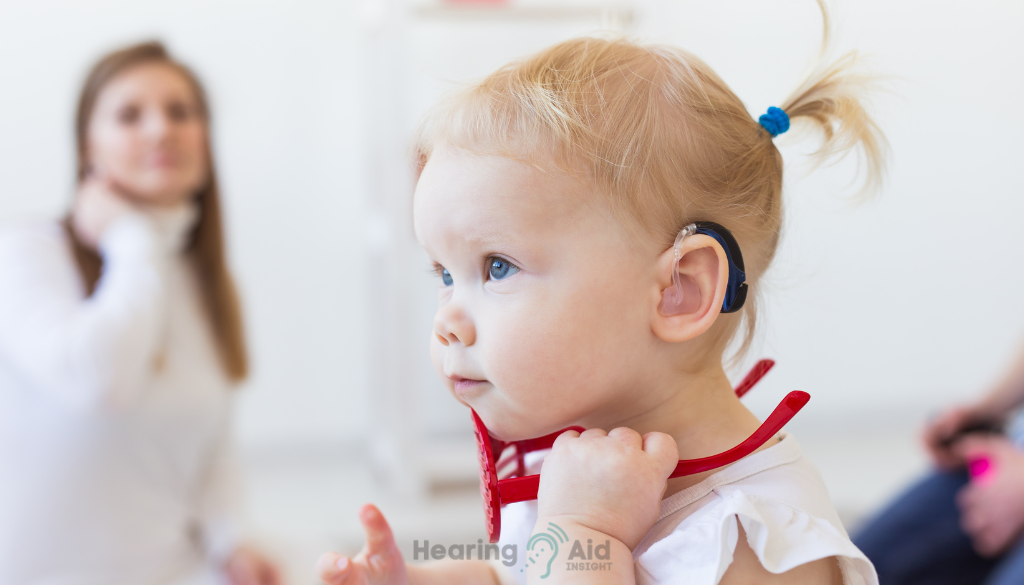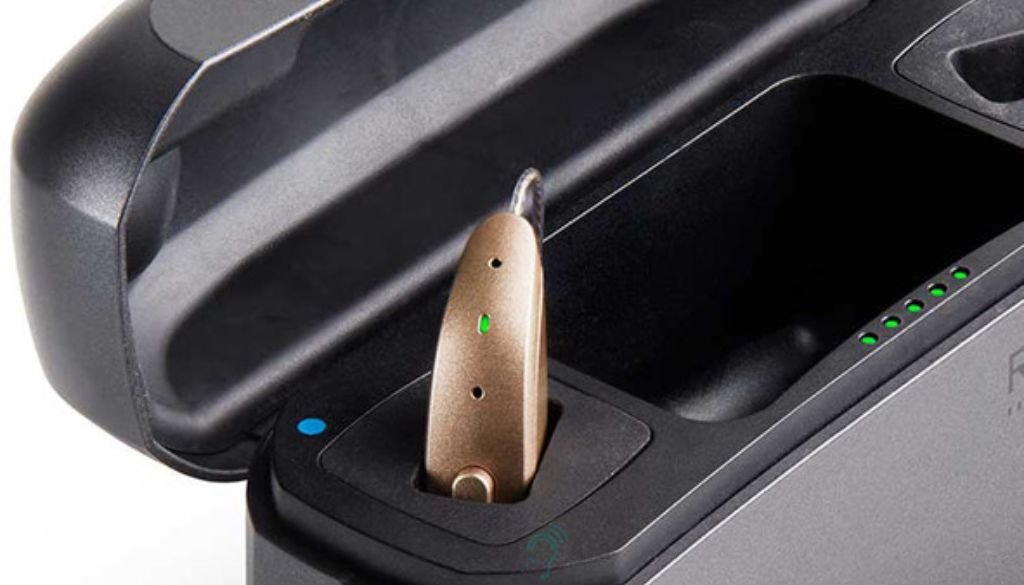Can Hearing Aids Cause Vertigo? Hearing aids are essential for many individuals experiencing hearing loss, enhancing their communication and interaction with the world around them. However, users and healthcare professionals are growing curious and concerned about the possibility of hearing aids causing vertigo. Vertigo, a condition characterized by spinning or dizziness, can be disorienting and significantly impact the quality of life. This article aims to thoroughly investigate the potential link between the use of hearing aids and the onset of vertigo symptoms.
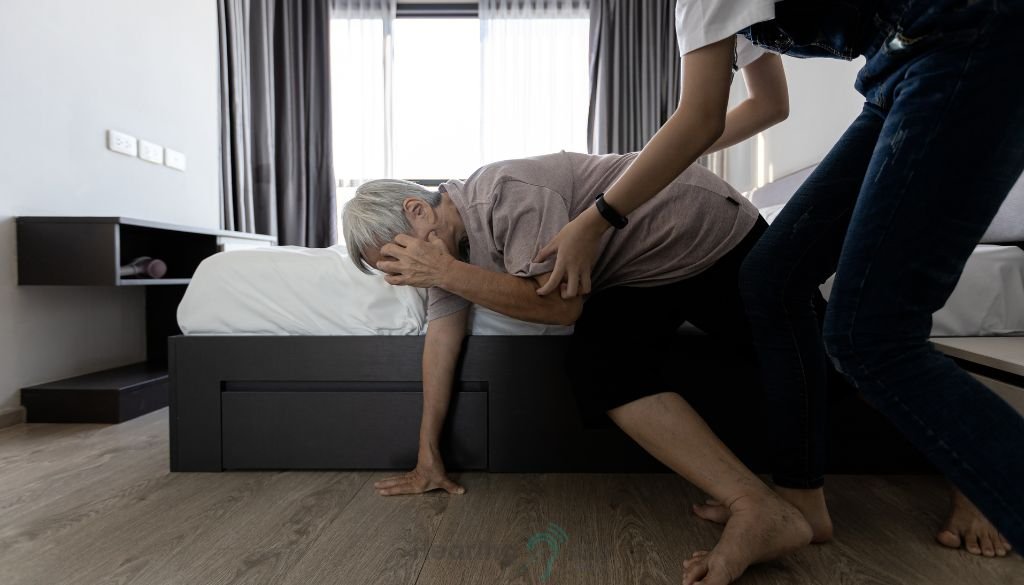
We will delve into the mechanics of hearing aids, examining how they work and their effects on the auditory system. Additionally, the article will explore various cases and studies to determine if there is a scientific basis for the association between hearing aid usage and vertigo. Understanding this relationship is crucial for current hearing aid users who may experience dizziness and those considering hearing aids as a solution to their hearing loss. Our goal is to provide comprehensive insights, address common concerns, and offer practical advice for those navigating the complex interplay between hearing aids and vestibular health.
Key Takeaways:
- Hearing aids typically do not directly cause vertigo or dizziness.
- Vertigo is often related to inner ear issues such as BPPV and Meniere’s disease.
- If dizziness occurs when using new hearing aids, it may be due to the fit of the device.
- Adjustments can be made by consulting with an audiologist to ensure a proper fit.
- The underlying cause of vertigo should be addressed through medical treatment.
Common Causes of Vertigo
Vertigo is a common symptom caused by various factors, primarily related to the inner ear. Understanding the common causes of vertigo can help individuals identify the underlying issue and seek appropriate treatment.
Vestibular Migraine
A vestibular migraine is a type of migraine headache that is often accompanied by vertigo. This condition can cause dizziness and spinning sensations, lasting a few minutes to several hours. Other symptoms may include headache, sensitivity to light and sound, and visual disturbances.
Inner Ear Conditions
Inner ear conditions such as benign paroxysmal positional vertigo (BPPV), Meniere’s disease, vestibular neuritis, and labyrinthitis can all cause dizziness. BPPV occurs when calcium carbonate crystals become dislodged and disrupt the normal fluid movement within the inner ear. Meniere’s disease is characterized by fluid buildup in the ear, leading to episodes of vertigo, hearing loss, and tinnitus. Vestibular neuritis and labyrinthitis are caused by inner ear inflammation, resulting in dizziness and other symptoms.
Medications and Head Injury
Certain medications, such as those used to treat high blood pressure or seizures, can have side effects that include dizziness and vertigo. Additionally, head injuries or trauma to the head can damage the inner ear or the vestibular system, leading to symptoms of vertigo.
- Benign paroxysmal positional vertigo (BPPV)
- Meniere’s disease
- Vestibular neuritis
- Labyrinthitis
- Vestibular migraine
- Medications
- Head injuries
It’s important to note that this list is not exhaustive, and there may also be other causes of vertigo. If you are experiencing vertigo symptoms, it is recommended to consult with a healthcare professional for an accurate diagnosis and appropriate treatment.
Read Also: Can hypertension cause hearing loss? Find out more
Coping with Vertigo: Lifestyle Adjustments and Finding Relief from Vertigo Symptoms
When experiencing vertigo can be a debilitating and uncomfortable sensation. However, there are steps you can take to cope with dizziness and find relief from its symptoms. Incorporating simple lifestyle adjustments and utilizing over-the-counter medications can help manage vertigo and improve your quality of life.
Lifestyle Adjustments
- Find a quiet space to lie still: When vertigo strikes, finding a soft and comfortable space can help alleviate the discomfort. This can reduce the spinning sensation and allow your body to regain balance.
- Take breaks and sit down: If you experience vertigo while standing or walking, taking frequent breaks and sitting down can be helpful. This can provide relief and help prevent falls or accidents.
- Make simple movements: Activities like squatting instead of bending over can minimize vertigo symptoms. These adjustments can help maintain stability and reduce dizziness.
Finding Relief from Vertigo Symptoms
If vertigo symptoms persist or become more severe, over-the-counter medications can provide temporary relief. Antihistamines, such as those used for motion sickness, can help alleviate nausea and dizziness associated with vertigo. However, consulting with a healthcare professional before taking any medications is essential to ensure they are safe and suitable for your situation.
While lifestyle adjustments and over-the-counter medications can provide short-term relief, addressing the underlying cause of vertigo is crucial to finding long-term solutions. Consulting with a healthcare professional, such as an audiologist or an ear, nose, and throat specialist, can help identify the cause of your vertigo and determine the appropriate treatment plan. They may recommend specific exercises, therapy, or medication to manage or alleviate your vertigo symptoms.
Read Also: Are Philips Hearing Aids Good?
The Connection Between Vertigo and the Inner Ear
Vertigo, a distressing sensation of spinning or movement, is closely tied to the inner ear. The inner ear plays a vital role in the body’s vestibular system, which maintains balance and coordinates movement. Within the inner ear are the semicircular canals, which contain delicate hair cells and fluid that act as sensors for detecting different types of exercise.
Damage or disruption to the inner ear can impact the functioning of the semicircular canals and lead to balance issues and vertigo. Various internal ear conditions, such as benign paroxysmal positional vertigo (BPPV), labyrinthitis, and vestibular neuritis, can cause dizziness by interfering with the proper functioning of the semicircular canals and the vestibular system.
It is essential to understand that vertigo is primarily related to inner ear issues rather than hearing aids. While wearing hearing aids may initially cause an adjustment period and some discomfort, little evidence suggests a direct connection between hearing aids and vertigo. If you experience dizziness or vertigo while using hearing aids, it is recommended to consult with an audiologist to ensure proper fit and make any necessary adjustments.
The Vestibular System and Vertigo
The inner ear’s vestibular system, which comprises the semicircular canals, plays a crucial role in maintaining balance and equilibrium. When the head moves, the fluid within the semicircular canals also moves, stimulating the hair cells and sending signals to the brain. These signals help the brain determine the body’s position in space and make necessary adjustments to maintain balance.
“The semicircular canals are like the body’s own built-in gyroscope, constantly providing feedback to the brain about the body’s orientation in relation to gravity.”
However, when the semicircular canals are disrupted or damaged, such as in cases of BPPV or inner ear inflammation, the flow of fluid and signals to the brain can become distorted. This disruption in the vestibular system can lead to a misperception of movement and the sensation of vertigo.
In conclusion, while vertigo and inner ear conditions are closely connected, hearing aids do not directly cause dizziness. The inner ear, particularly the functioning of the semicircular canals, plays a critical role in maintaining balance and coordinating movement. If you experience vertigo or dizziness, it is best to consult a healthcare professional to determine the underlying cause and appropriate treatment.
Conclusion
After exploring the connection between hearing aids and vertigo, it is evident that they do not directly cause dizziness. While it is true that some individuals may experience an adjustment period and initial discomfort when using hearing aids, there is no significant evidence to support the notion that hearing aids are a direct cause of vertigo.
Vertigo is primarily associated with inner ear issues such as benign paroxysmal positional vertigo (BPPV), Meniere’s disease, and vestibular neuritis. These conditions disrupt the functioning of the inner ear, leading to balance problems and a spinning sensation. Treatment for vertigo depends on identifying the underlying cause, and it is essential to consult with an audiologist or healthcare professional to address any dizziness experienced while using hearing aids.
Despite the lack of direct causality, hearing aids can improve hearing and potentially enhance balance. By amplifying sounds and improving auditory awareness, hearing aids contribute to overall well-being and a better quality of life. Remember, if you experience dizziness or vertigo with your hearing aids, it is crucial to consult with a professional to ensure proper fit and make any necessary adjustments.
Can a deviated septum cause tinnitus? Unravel the complexities in our comprehensive guide, exploring the connection between nasal passages and ear health.
Frequently Asked Questions
Can wearing hearing aids cause vertigo?
Hearing aids do not typically cause vertigo or dizziness. However, it may take some time to adjust to new hearing aids. If dizziness occurs with a new hearing aid, it could be related to the fit of the device, and adjustments can be made in consultation with an audiologist.
What are the common causes of vertigo?
Vertigo is often linked to conditions that affect the inner ear, such as benign paroxysmal positional vertigo (BPPV), Meniere’s disease, vestibular neuritis, labyrinthitis, vestibular migraine, certain medications, head injuries, and central vertigo caused by brain changes.
What should I do when experiencing vertigo?
When experiencing vertigo, finding a quiet space to lie still or sit down can help alleviate discomfort. Over-the-counter medications like antihistamines can temporarily relieve symptoms, and lifestyle adjustments such as squatting instead of bending over and using a cane while walking may also help manage vertigo. However, it’s essential to consult a doctor to address the underlying cause and determine the appropriate treatment.
How is vertigo connected to the inner ear?
Vertigo is closely connected to the inner ear, which plays a crucial role in the body’s vestibular system, which is responsible for balance and movement. Internal ear conditions such as BPPV, labyrinthitis, and vestibular neuritis can disrupt the functioning of the semicircular canals and the vestibular system, leading to vertigo.
What is the conclusion regarding hearing aids and vertigo?
While wearing hearing aids may cause an adjustment period and initial discomfort, there is no significant evidence to suggest that hearing aids directly cause vertigo. Vertigo is primarily related to inner ear issues. If you experience dizziness with hearing aids, consult an audiologist to ensure proper fit and make any necessary adjustments. Hearing aids can improve hearing and potentially enhance balance as hearing improves.




